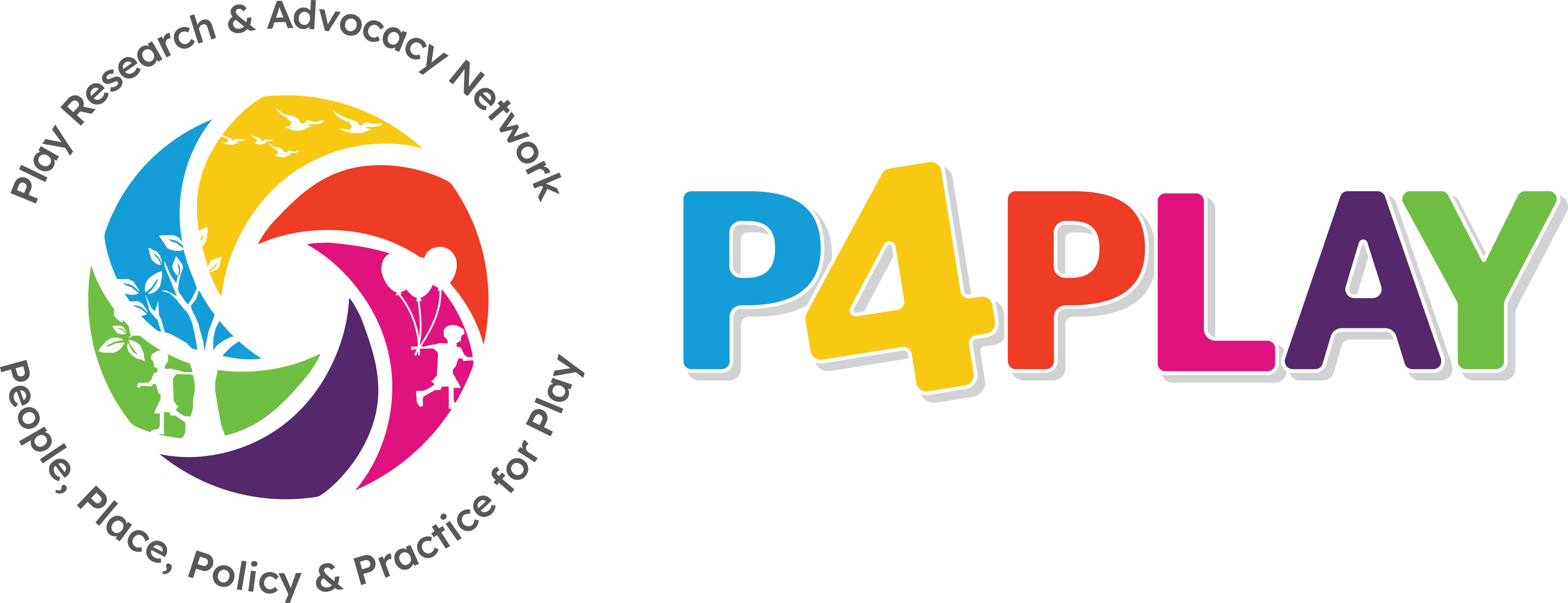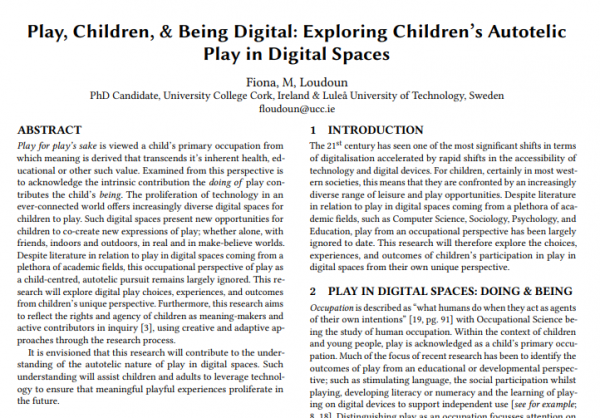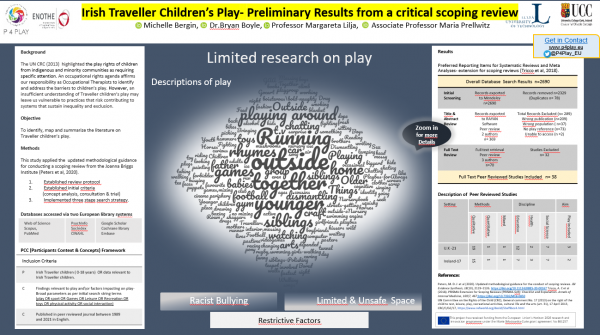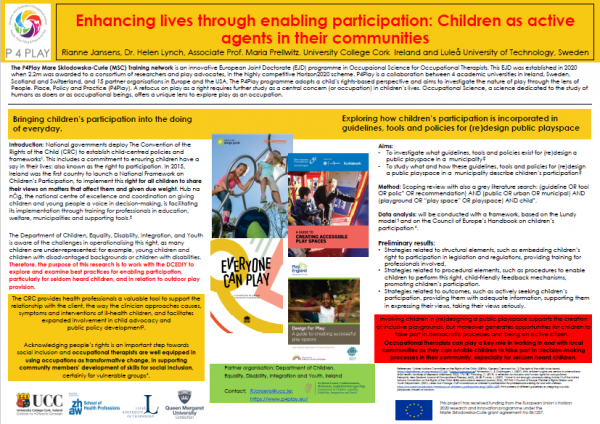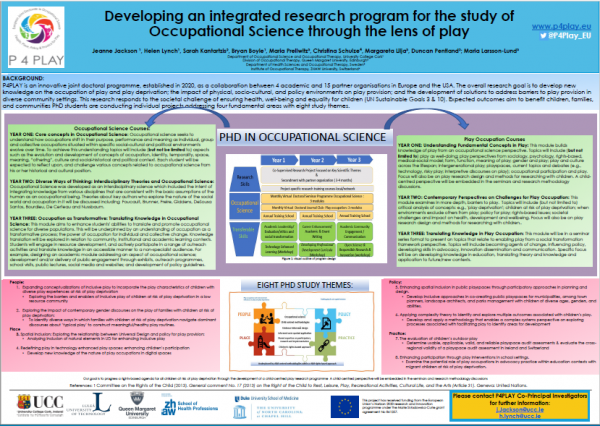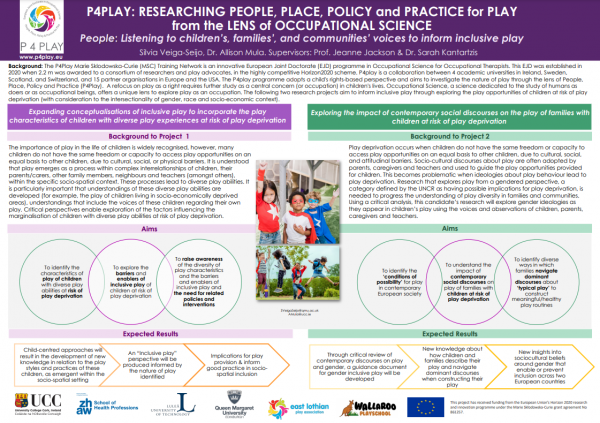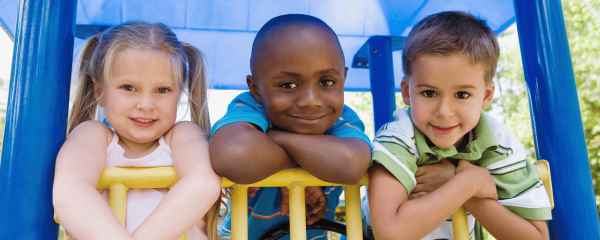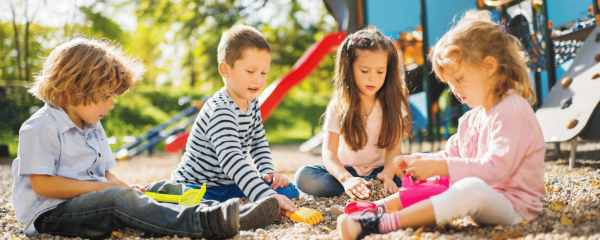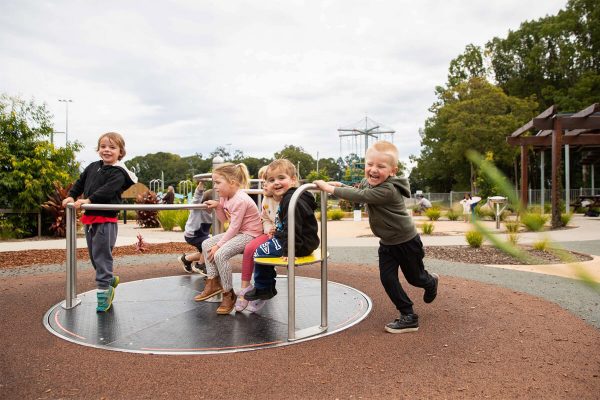Resources
Conference paper: Play, Children, & Being Digital: Exploring Children’s Autotelic Play in Digital Spaces
Play for play’s sake is viewed a child’s primary occupation from which meaning is derived that transcends it’s inherent health, educational or other such value. Examined from this perspective is to acknowledge the intrinsic contribution the doing of play contributes the child’s being. The proliferation of technology in an ever-connected world offers increasingly diverse digital spaces for children to play. Such digital spaces present new opportunities for children to co-create new expressions of play; whether alone, with friends, indoors and outdoors, in real and in make-believe worlds. Despite literature in relation to play in digital spaces coming from a plethora of academic fields, this occupational perspective of play as a child-centred, autotelic pursuit remains largely ignored. This research will explore digital play choices, experiences, and outcomes from children’s unique perspective. Furthermore, this research aims to reflect the rights and agency of children as meaning-makers and active contributors in inquiry [3], using creative and adaptive approaches through the research process. It is envisioned that this research will contribute to the understanding of the autotelic nature of play in digital spaces. Such understanding will assist children and adults to leverage technology to ensure that meaningful playful experiences proliferate in the future.
Conference poster: Irish Traveller Children’s Play – Preliminary Results from a critical scoping review
The UN CRC (2013) highlighted the play rights of children from indigenous and minority communities as requiring specific attention. An occupational rights agenda affirms our responsibility as Occupational Therapists to identify and address the barriers to children’s play. However, an insufficient understanding of Traveller children’s play may leave us vulnerable to practices that risk contributing to systems that sustain inequality and exclusion. This study aimed to develop knowledge to support practice. The primary objective of the study was to identify, map and summarize the literature on Traveller children’s play. The updated methodological guidance for conducting a scoping review from the Joanna Briggs Institute (Peters et al, 2020) was implemented. This poster presentation outlines preliminary findings from the study.
Conference poster: Enhancing lives through enabling participation: Children as active agents in their communities
Poster presented at AOTI Conference 2021 (Association Occupational Therapists Ireland)
Conference poster: Developing an integrated research program for the study of Occupational Science through the lens of play
Poster presented at SSO:USA Conference 2021 (Society for the Study of Occupation, USA).
The P4PLAY is an innovative joint doctoral programme, established in 2020, as a collaboration between 4 academic and 15 partner organisations in Europe and the USA. The overall research goal is to develop new knowledge on the occupation of play and play deprivation; the impact of physical, socio-cultural, and policy environments on play provision; and the development of solutions to address barriers to play provision in diverse community settings. This research responds to the societal challenge of ensuring health, well-being and equality for children (UN Sustainable Goals 3 & 10). Expected outcomes aim to benefit children, families, and communities. PhD students are conducting individual projects addressing four fundamental areas of play (People, Place, Policy, Practice [P4Play]) with eight study themes.
Conference poster: Listening to children’s, families’, and communities’ voices to inform inclusive play
P4PLAY: RESEARCHING PEOPLE, PLACE, POLICY and PRACTICE for PLAY from the LENS of OCCUPATIONAL SCIENCE: Listening to children's, families', and communities' voices to inform inclusive play. Play 2021 - A conference on children, play and space, Birmingham, UK.
